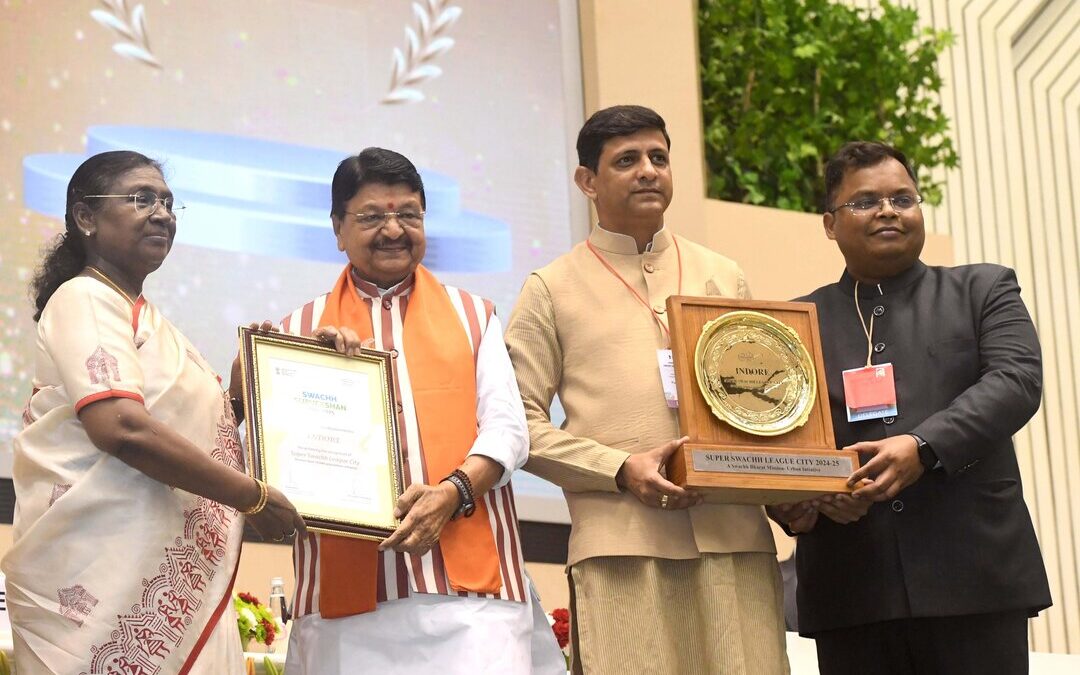President Murmu Backs Circular Economy at Swachh Bharat Awards Ceremony
President Droupadi Murmu urges sustainable living, highlights traditional practices at Swachh Survekshan awards ceremony in New Delhi.
President Droupadi Murmu on Thursday presented the Swachh Survekshan awards at a function hosted by the Ministry of Housing and Urban Affairs in New Delhi, reaffirming the government’s commitment to cleanliness and sustainable urban development.
Calling Swachh Survekshan “a successful experiment,” Murmu praised the 2024 edition as the world’s largest cleanliness survey, with participation from over 140 million citizens, state and urban bodies, and civil society.
“Cleanliness has been a core part of India’s cultural and spiritual consciousness,” she said, referencing Mahatma Gandhi’s principle that “Cleanliness is next to godliness.”
Ancient Practices Key to Circular Economy
President Murmu highlighted the relevance of traditional Indian lifestyles—particularly those of tribal communities—in strengthening modern systems of circularity.
She noted that the reduce-reuse-recycle principles embedded in circular economy models mirror longstanding indigenous practices.
“Tribal communities live in harmony with the environment, use minimal resources and avoid waste,” Murmu said. “By adopting such traditions, we can reinforce modern circularity systems.”
Source Segregation, School Initiatives Lauded
The president underlined source segregation as the “first and most important” step in the waste management chain, calling on households and stakeholders to adopt it as a routine practice. She cited zero-waste colonies as examples of effective implementation.
Murmu also endorsed the new School Level Assessment initiative, aimed at encouraging children to embrace cleanliness as a core value. She called the initiative “beneficial and far-reaching.”
Plastic Waste Still a Challenge
Addressing the persistent issue of plastic and electronic waste, Murmu emphasized the importance of reducing emissions and improving compliance with regulations.
She recalled the government’s 2022 ban on certain single-use plastics and guidelines on Extended Producer Responsibility for plastic packaging.
“It is the responsibility of all stakeholders—including producers, brand owners and importers—to ensure these EPR guidelines are fully followed,” she said.
Vision for 2047
Murmu concluded by asserting that cleanliness is not only an environmental imperative but also tied to India’s economic, cultural and geographical identity. She expressed confidence that citizens would continue to engage wholeheartedly in the Swachh Bharat Mission.
“With strong and thoughtful resolutions, India can become one of the cleanest nations by 2047,” she said.
Nirmal Menon
Related posts
Subscribe
Error: Contact form not found.


